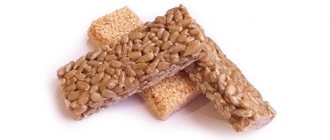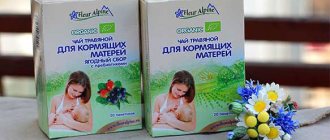The benefits of rosehip-based drinks are recognized not only by traditional healers, but also by official medicine. The valuable properties of the fruit are used for the treatment and prevention of a number of diseases. Drinks with rose hips can be drunk while breastfeeding. But in some cases their use should be limited.
Rosehip during breastfeeding is an excellent remedy for maintaining the immunity of a nursing mother.
The benefits and harms of rose hips
The special value of the product is due to the high content of vitamin C (ascorbic acid). Rosehip is a record holder for its content. Just one handful of berries replenishes the daily requirement of vitamin C. Rosehip is ahead of citrus fruits and currants in terms of the concentration of the element.
In addition to ascorbic acid, the fruits are rich in beta-carotene, vitamins A, B2, E, PP, as well as iron, tannins, calcium, essential oils, and phytoncides. These elements are necessary for a nursing woman and baby. Rosehip has anti-inflammatory, antibacterial, choleretic, hemostatic, and diuretic effects.
The benefits of rosehip drinks for a nursing mother are as follows:
- normalize hormonal levels. The fruits contain phytoestrogens. These are plant hormones. Phytoestrogens support the functioning of the sex glands. Female hormones are produced in the right quantities, which has a beneficial effect on appearance and overall health;
- increase immunity. Antioxidants (vitamins C, E, A) in the fruit stimulate protective reactions and strengthen blood vessels. This is especially important during an epidemic of influenza, ARVI;
- remove excess fluid from the body. During pregnancy, the kidneys do double duty. A decoction of the roots or fruits of the bush helps improve their functions and prevents swelling;
- prevention of vitamin deficiency. Drinks with rose hips relieve anemia because they contain a lot of ascorbic acid. This component improves the absorption of iron from foods several times;
- help to recover after a difficult birth. Thanks to the anti-inflammatory, hemostatic effect, tissue regeneration is accelerated;
- relieve joint pain. This effect is explained by the fact that rosehip relieves inflammation.
Drinks made from wild rose fruits enrich milk with elements important for the growth and development of an infant. If a woman includes them in her diet, the baby’s risk of anemia and intestinal disorders is reduced, the body’s resistance increases, and blood circulation improves.
Rosehip, like any other product, can harm a nursing woman and baby if consumed in excess. High concentrations of vitamins are dangerous for the liver. Like other red fruits, rose hips can cause allergies. It manifests itself as skin rash, stool disorders, intestinal discomfort, and laryngeal edema.
Rosehip composition
The beneficial properties of rose hips are determined by its chemical composition:
- Vitamin A (retinol) prevents hair loss, helps improve the condition of hair and skin, and affects the quality of vision.
- B vitamins: B1 (thiamine) helps increase attention, improves memory, activates brain activity, and slows down the aging process. B2 (riboflavin) improves the appearance of the skin, is responsible for its elasticity, strengthens nerve cells, and increases stress resistance.
- Vitamin C improves the immune system, helps increase the overall tone of the body, and strengthens the walls of blood vessels.
- Vitamin E normalizes hormonal balance, inhibits the aging process, and normalizes the functioning of the heart.
- Vitamin PP helps improve the functioning of the digestive system, blood circulation, strengthens the heart and liver.
- Calcium is responsible for the strength of bone cells and tooth enamel, regulates blood clotting processes, and reduces the amount of cholesterol.
- Magnesium normalizes the functioning of nervous system cells and helps strengthen blood vessels.
- Sodium normalizes water and salt metabolism, blood pressure, and heart rate.
- Potassium is responsible for supplying oxygen to brain cells, improves muscle activity, and helps normalize blood pressure.
- Phosphorus is responsible for the strength of bone tissue, tooth enamel, helps improve memory, and normalizes kidney function.
- Iron is responsible for metabolism, supplying cells with oxygen, and strengthens the immune system.
- Zinc helps improve memory, improve mood, and improves the functioning of the reproductive system.
- Copper helps relieve spasms, improves blood counts, and helps reduce inflammation.
- Manganese cleanses the body of toxins, improves the condition of the liver, and strengthens the immune system.
BJU of rosehip: 1.6/0.7/22.4. Fiber is 10.8 g, organic acids are 2.3 g.
The effect of rosehip drinks on lactation
Many women note that drinking from the fruit increases milk production. This fact has no scientific basis. But, as practice shows, tea made from berries copes with the problem of insufficient lactation. It will be beneficial if you drink it half an hour before feeding, adding a little cow's milk.
To prepare strong tea with a lactogenic effect, place 4 tablespoons of dry raw materials in a thermos and add a liter of hot water. Its temperature should be 70-80 degrees. The tea is infused under the lid for at least 4 hours. The finished drink has a rich red color. Before use, it is filtered to retain the villi that prick the tongue.
When consuming rose hips during breastfeeding, you need to remember about the diuretic effect. Excess drink can lead to decreased lactation and even dehydration.
Contraindications and side effects
The drink should not be consumed if a woman has worsened chronic pathologies of the gastrointestinal tract: gastric and duodenal ulcers, gastritis, cholecystitis, pancreatitis. Fruits increase the production of gastric juice. This may make the situation worse.
Fruits rarely cause allergies. A negative reaction most often occurs due to excess vitamin C. Therefore, rosehip drinks cannot be combined with taking medications, dietary supplements containing ascorbic acid, retinol.
Contraindications to the use of the drug are:
- tendency to form blood clots, thick blood;
- any type of diabetes;
- individual intolerance;
- bronchial asthma;
- hemochromatosis;
- sideroblastic anemia;
- thalassemia;
- deficiency of glucose-6-phosphate dehydrogenase;
- urolithiasis disease.
It is not recommended to drink rosehip drinks during treatment with blood thinners.
Rose hips, like all foods and medicines, have contraindications and possible side effects that you should be familiar with before consuming the berries.
Side effects:
- violation of the outflow of bile. This effect leads to constipation, intestinal dysfunction, and liver disease;
- a strong decoction stains teeth and increases their sensitivity. To limit the effect of drinks on the enamel, they are drunk through a straw. After drinking the drink, it is advisable to rinse your mouth with water;
- heartburn, stomach cramps, diarrhea. Side effects are observed with increased acidity;
- hypervitaminosis. Fatigue, vomiting, diarrhea, irritability, headache, sleep disturbances. Such symptoms are a sign of hypervitaminosis.
Side effects are mainly associated with drinking large portions of drinks. When used in moderation, they rarely cause negative consequences.
Is it possible to take rose hips while breastfeeding?
Regarding the use of this gift of nature during breastfeeding as a food or medicine, expert opinions still differ.
Most pediatricians believe that it is necessary to widely use all the beneficial properties of this plant. They consider the following to be especially valuable for a nursing mother:
- Rosehip actively participates in restoring a woman’s immune system, which has weakened significantly during pregnancy.
- Many medications for young mothers are prohibited, so the use of decoctions and tinctures from these berries is recommended for the treatment of colds and various viral infections.
- Rosehip is successfully used to quickly normalize the functioning of the liver and kidneys, since it is these organs that usually require attention after childbirth and during lactation.
- The berry and drinks prepared from it have a calming effect on a woman’s central nervous system, which is important, since nervous breakdowns are quite common in the early postpartum period. Of course, this gift of nature is inferior in its pharmacological strength to conventional tranquilizers, but rosehip does not have a depressing effect on the baby’s nervous system.
- It should also be remembered that the fetus can have a positive effect on lactation.
However, a fairly large group of experts advises not to forget about some of the negative aspects when including a plant in the diet of a nursing mother. First of all, this is the effect of fruits on the mother’s gastrointestinal tract.
Berries increase the secretion of gastric juice, which often causes discomfort in the stomach. In addition, doctors noticed that rose hips can lead to constipation in women, that is, they can worsen one of the main problems of a nursing mother.
General practitioners are well aware of the ability of drinks made from this plant to cause vasospasm, which often leads to increased blood pressure. Women who have had problems with elevated blood pressure during pregnancy or childbirth should be especially careful.
Young mothers should remember that before the baby reaches 3 months, fresh fruits of the plant will most often cause digestive disorders in the baby, accompanied by colic and bloating. At the same time, some experts noted possible skin allergic manifestations from dry berries.
Whether to include rose hips in your diet or not, to use infusions and decoctions from the fruit or to abstain - each nursing woman must decide these questions individually. Consultation with a specialist will help the young mother make the right choice.
Watch the video about the beneficial properties of rose hips:
When and how to introduce rose hips into the diet during the lactation period
A nursing woman can drink wild rose-based drinks when her baby is 3 months old. Before this time, there is a high probability of negative reactions. Allergies in mother and child are caused by red pigment, which gives the fruit its characteristic color.
Rose hips should be introduced gradually during lactation, starting with a decoction. Heat treatment takes away a significant part of the properties of fruits. This means that the risk of unwanted reactions is minimal. For the first time, just take a few sips. A negative reaction may appear within 1-2 days.
Rosehip decoction is ideal for introducing your baby to this berry through mother's breast milk.
If the introduction to the product went well, the baby had no rashes, problems with stool, or colic, rosehip drinks are administered without fear. It is enough to use the decoction 2-3 times a week.
Negative reactions are a reason to give up rose hips for 2-3 months. By this time, the baby’s gastrointestinal tract will be stronger and, perhaps, the re-acquaintance will be successful.
How to select and store rose hips
The berries are collected away from industrial facilities and highways. The optimal time for harvesting is August, September. The fruits are dried immediately after collection at a temperature of 90 degrees. The raw materials are mixed periodically.
Dry berries are sold in pharmacies and stores. Particular attention is paid to the appearance of the product. The berries must be clean, whole, without black spots or mold.
Medicinal varieties include “cinnamon” and “wrinkled” rose hips. They are recognized by the sepals located at the tip of the berries. In medicinal varieties they are curved on the sides. In fruits with a low vitamin content, the sepals “look” inward. A quality product is determined by its uniform red or brown color. Ripe rose hips are slightly astringent and have a rich sweet and sour taste with a herbal note.
Rose hips are stored at room temperature in a glass jar with a perforated lid or in a fabric bag. The room should be well ventilated.
How to consume rose hips
Based on the fruits the following is prepared:
- decoction;
- tea;
- compote;
- jelly;
- infusion.
In industrial conditions, syrup, oil, and extracts are obtained from raw materials.
Lactation drinks are prepared from dry raw materials. They contain more vitamins than fresh ones. In addition, fresh berries can cause gastrointestinal disorders in mother and baby.
Infusion
During the boiling process, a significant part of the useful elements is destroyed. To prepare the infusion in a thermos, pour hot water over the berries. With such processing, much more valuable properties are preserved.
To prepare the infusion, take 3 tablespoons of berries. The raw materials can be crushed before brewing using a mortar or coffee grinder. So the rose hips will “give” more vitamins to the drink. It is recommended to prepare the infusion in a thermos with glass or ceramic walls. Metal utensils destroy vitamin C.
Features of brewing while maintaining maximum benefits:
- The crushed raw materials are poured with hot water. To preserve useful elements, the temperature of the liquid should not exceed 80 degrees.
- The thermos is left open for 3-5 minutes. After this, cover it with a lid and leave for 4-12 hours. It is best to prepare the drink in the evening and drink throughout the next day.
Decoction
Such a drink loses a significant part of its elements due to heat treatment. The advantage of rosehip decoction is that it is ideal for women who are breastfeeding, as well as for children from 6-7 months.
For preparation, take 5 tablespoons of fruits. They are poured with 2 liters of hot water and brought to a boil. Cooking time – 7 minutes. The broth is wrapped in a towel and infused under the lid. Strain the warm drink and drink one glass 3 times a day. Honey or sugar is added to it.
Compote
This type of drink differs from the decoction in its richer taste. In a 2 liter saucepan, boil water with the addition of 3 tbsp. spoons of sugar. After bubbles appear on the surface, add 200 g of fruit. The compote is boiled for 7-10 minutes.
For a rich taste, raisins, dried apricots, and apples are added to the water along with rose hips.
Tea
In winter, the drink is drunk to strengthen the immune system and prevent vitamin deficiency. In summer, iced rosehip tea perfectly quenches thirst.
Cooking features:
- Not only fruits are suitable for brewing, but also leaves, petals, and roots of the bush. Before cooking, the kettle is rinsed with boiling water;
- Green tea is poured into the mesh and rosehip fruits (leaves, petals) are added. Pour boiling water over the dry mixture and cover with a lid;
- The tea is brewed for at least an hour. To keep warm, wrap the container with a towel;
- The tea leaves are poured into a glass and diluted with hot water. Add sugar, honey or stevia extract to taste.
It’s better not to be lazy and make rosehip tea from dried fruits yourself. Bagged tea often does not provide any benefit to the body, but it can cause harm.
Syrup
In this form, rose hips are used as an additive to drinks. Plant syrup for breastfeeding is recommended for use after consultation with a doctor for the treatment of hypertension and salt metabolism disorders. It contains a lot of magnesium, vitamins C, E and other elements. An excess of these substances can harm a nursing mother and baby if taken uncontrolled.
The syrup is also taken as a dietary supplement during meals to prevent flu and colds.
Contraindications to rose hips during breastfeeding
Despite all the positive qualities of this plant, there are a number of restrictions on its inclusion in a woman’s diet during breastfeeding:
- The most dangerous for mother and baby are possible allergic reactions, so rosehip is limited for use in the first 3 to 6 months after birth.
- The berry is contraindicated for women who have a history of gastritis or gastric ulcer caused by increased acidity.
- Rosehip affects the blood coagulation system, so when consuming it, you should take into account the increased risk of blood clots.
- Hypertension and hypertension-type VSD are also a contraindication for the use of rose hips in any form by nursing women.
A not critical, but rather unpleasant feature of this berry is also considered to be the increased content of tannins in it, which often leads to damage to teeth when consuming rosehip infusions and decoctions. It should be borne in mind that many women’s teeth after childbirth are already in a rather deplorable state.










